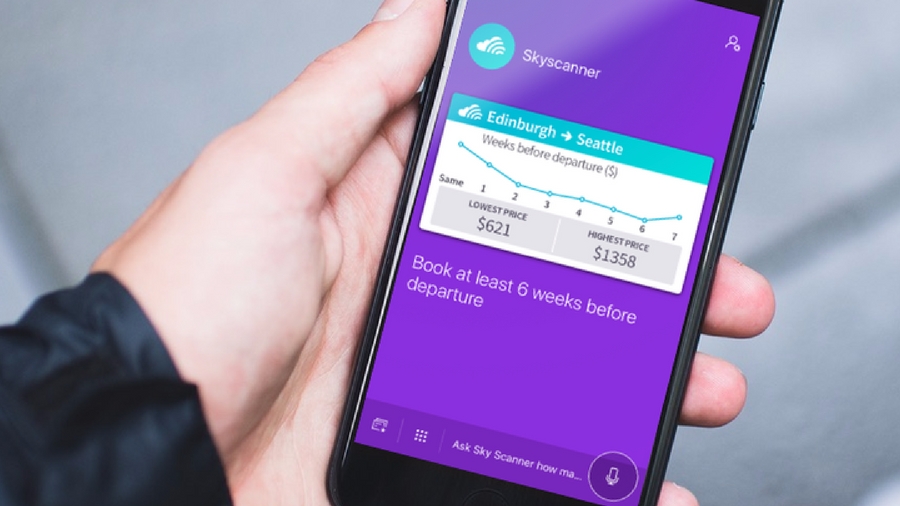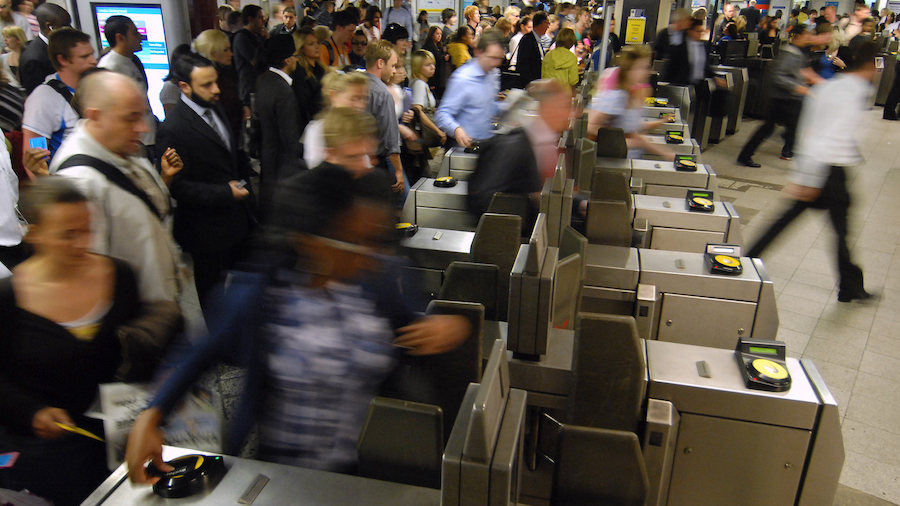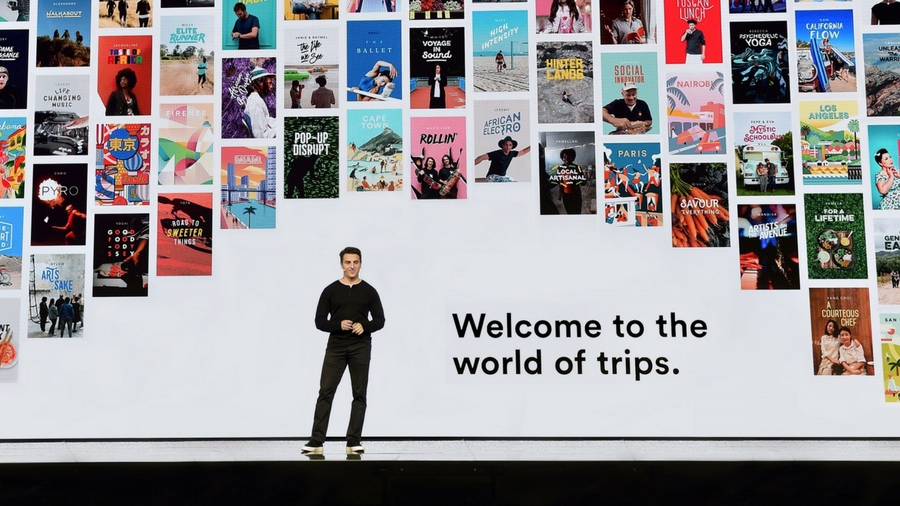How AI is changing how we travel
The travel industry is undergoing an AI transformation

Where are you? If you don't know, it's likely that the artificial intelligence (AI) in your pocket does. From Google Maps and voice assistants to the scores of travel apps that make online booking easy and instant, AI is grabbing hold of the travel industry – and it's not letting go. There is a simple reason for this; the internet has made booking flights, hotels and rental cars a wholly online experience. So there's now big data on all of our travel habits, and it’s allowing AI algorithms, customization and chatbots to spread.
The AI opportunity
However, the travel industry does need to be careful not to go overboard with AI and chatbots.
“As we operate in an industry that is incredibly personal, emotional and complex, maintaining the right balance between genuine human interaction and efficient automation is something we're always trying to fine-tune and optimize throughout every stage of the consumer journey, " says James Waters, Global Director of Customer Service at Booking.com. His company found that 80% of customers prefer to self-serve in order to get the information that they need. So, with the help of AI, why not let them?

Beyond ‘click-type-tap’
Online booking is easy; you click on what you want to do, type something, then tap 'search'. Actually, we're in the dying days of the 'click-type-tap' pattern, according to Skyscanner, which is moving to answering questions via messaging platforms and digital assistants. In 2016 it became the first travel search engine to create a skill for Amazon’s Alexa voice service, and soon followed it up with Microsoft’s Cortana. Now it's got a bot for Facebook’s Messenger platform, and a group chat travel search bot on the Skype Bots platform. The latter informs the user when prices change on selected flights, and also allows complex itineraries to be shared via both the Skype and Facebook bots.

Leave it to the bots?
Search the web for information on a destination or a hotel and you get nothing but meaningless marketing. So how about we let the AI bots do the booking? Booking.com predicts that in 2018 travelers will look to technology to help better understand a destination, and their accommodation, before they book. In its survey, almost a third (29%) of global travelers say they are comfortable letting a computer plan an upcoming trip based on data from their previous travel history and half (50%) don’t mind if they deal with a real person or computer, so long as any questions are answered. Over six in 10 (64%) of travelers say they would like to ‘try before they buy’ with a virtual reality preview, while 50% find that personalized suggestions for destinations and things to do encourages them to book a trip.
Booking.com's new AI-powered Booking Assistant chatbot is in training and so far it can respond to 30% of customers’ stay-related questions automatically in less than five minutes.
“For us, AI is not about replacing human interaction, but is instead a vehicle to facilitate an even more personalized, instantaneously gratifying and frictionless travel experience for consumers,” said Waters.
Get daily insight, inspiration and deals in your inbox
Sign up for breaking news, reviews, opinion, top tech deals, and more.
- Get rewards for your trip with the best credit cards for travel (US only)

AI on the rails
Travel is stressful, especially for railway passengers. So why not use machine learning to analyze the vast quantities of data now available to create a contextually rich, highly personalized, and fully predictive journey? In the UK, online rail booking service Trainline has use crowdsourced data to create a bot that advises passengers where they’re most likely to find a seat, depending on the location and direction of their specific journey. One of the key features is price prediction, which tries to pre-empt a passenger's demand for specific tickets, and shows how long a ticket is going to be a certain price for, how many tickets are left at the price, and what the cheapest available ticket is each day. Meanwhile, BusyBot crowdsources data from passengers to notify others about how busy a specific section of a train is.

Virtual ticketing booths
Digital assistants are also having a say when it comes to travel.
“As AI continues to evolve, we’ll see digital assistants make their way into new sectors such as transport, where high volumes of commuters can benefit from automated, real-time assistance," says Graham Fletcher, Head of Research & Development at Cubic Transportation Systems, the company behind the Oyster Card travel card system used in London. Its NextAgent replaces the traditional ticket office, with a video link for travelers to see and speak with an expert located in a call centre. An integrated camera can also be used for document validation, as a help point and to display information such as maps and timetables.
"Virtual ticketing machines with human guides are already being trialled in stations across the globe, and it’s easy to see how this technology can be enhanced with AI, especially for routine queries, frequently asked questions and directing travelers to local points of interest," says Fletcher. Put simply, ask a stupid question and a virtual bot will answer. Anything more technical, and you'll get a human.

From instinct to machine learning
AI is also being used by airlines to plan routes. Instead of using instinct (okay, and quantitative analysis) to predict the demand for a new airline route, Skyscanner thinks that machine learning is better. It used a Python-based K-means algorithm on vast datasets within its Travel Insight data platform, analyzing the search patterns of over 50,000 origins and destinations during 2016. An unsupervised machine learning algorithm – one of the new breed of AI techniques that doesn't require much involvement of computer scientists – K-means discovered that the largest category is summer family holidays leaving on weekend departures, and that 'romantic' couples destinations like Venice and Paris are just as popular with solo travelers. AI like this looks set to help airlines decide not only where to fly, but on what day of the week, and even what time of the day.

Airbnb
All travel websites use algorithms in their search engines, but Airbnb has big plans for the way its customers interact with the millions of home-stays on its books. Obviously Airbnb uses big data and your preferences, rating and search history when giving you search results, but the host-guest pairing service also uses machine learning. Each time you click on a property, the system calculates how likely it is that you will positively review it. Not just from calculations based on review data from others who have stayed at a property, but also on the language you use in your own reviews of other properties. The end-game is that Airbnb will show you results, based not only on your search terms, but on you and your very specific preferences. For example, if you like places out in the country and away from main roads. Via the AI's object recognition of photographs and video, it cold even match the size of a place, or even the furniture within it, to places you’ve stayed in before, and reviewed positively.
Touchy-feely tech?
However, be wary of the touchy-feely nature of how AI is portrayed by the travel industry, because it’s not all about personalization for your benefit. TRACK Hospitality just launched an AI-powered secure messaging app for Airbnb business users that auto-responds to questions and inquiries from potential renters. It uses pre-built responses, though the property owners can also respond using free-form messages.
"We have found clear communication across all channels to be key in driving higher conversion rates, as well as happier and more loyal guests," says Ryan Bailey, CEO of TRACK Hospitality Software. Here, AI is used mostly to 'maximize conversion rates' – and that's the core motivation behind almost all uses of AI in the travel industry.
The travel industry is embracing AI in ever more impressive ways to keep you happy – and keep you (and your wallet) constantly moving.
- TechRadar's AI Week is brought to you in association with Honor.
Jamie is a freelance tech, travel and space journalist based in the UK. He’s been writing regularly for Techradar since it was launched in 2008 and also writes regularly for Forbes, The Telegraph, the South China Morning Post, Sky & Telescope and the Sky At Night magazine as well as other Future titles T3, Digital Camera World, All About Space and Space.com. He also edits two of his own websites, TravGear.com and WhenIsTheNextEclipse.com that reflect his obsession with travel gear and solar eclipse travel. He is the author of A Stargazing Program For Beginners (Springer, 2015),
